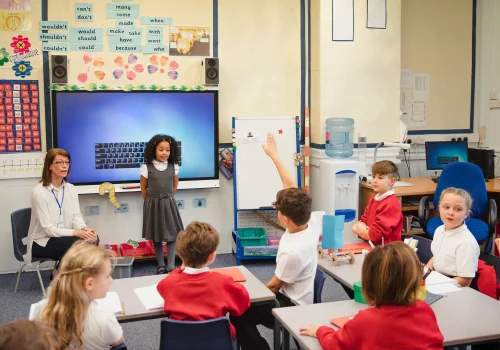Improving Early Education With Interactive Play
Interactive play has become a cornerstone of early education. It’s not just about fun; it plays a key role in helping young children develop a wide range of skills. By engaging in hands-on activities, children can learn basic concepts in an enjoyable way. This approach is particularly effective for kindergartners, as it stimulates creativity, problem-solving, and social skills. Interactive play also supports emotional growth, providing children with the tools they need to succeed in school and life.
Educational Games for Early Learners
Free educational games for kindergarteners are increasingly popular. These games allow children to engage with learning material in a fun and accessible way. They can cover a wide variety of subjects, from numbers and letters to science and art. Such games often encourage exploration and experimentation, which are key to the learning process at an early age. For both parents and teachers, these games are a great resource as they offer educational content without any cost. Interactive play, through these games, is a dynamic way to introduce essential skills while keeping children entertained.
The Impact of Play-Based Learning in Pre-K Facilities
Play-based learning in pre-k facilities provides children with the opportunity to explore new ideas, experiment with problem-solving, and build relationships with others. It is a teaching method that prioritizes play as the main medium for learning. Pre-kindergarten is a time of immense growth, and facilities that incorporate this approach foster creativity and social-emotional development.
Social Development Through Group Play at Pre-k Facility
Group play in early education offers countless opportunities for social development. Through interactive play, children learn how to work together, negotiate, and resolve conflicts. These experiences prepare them for future social interactions in school and beyond. At a pre-k facility, children often engage in group play, learning not only academic skills but also important life skills such as empathy and cooperation. By navigating social dynamics during play, children develop a sense of belonging and an understanding of how to communicate effectively with others.
Free Educational Games Improve Learning Engagement
Free educational games don’t just entertain; they keep children engaged and excited about learning. These games provide instant feedback, allowing children to understand their progress and motivate them to continue. The interactive nature of these games helps hold the attention of young learners, making it easier for them to absorb new concepts. Whether through colorful visuals, engaging characters, or simple challenges, these games help reinforce lessons and encourage independent thinking, all while offering valuable learning opportunities. So, free educational games for kindergarteners provide the perfect mix of fun and education.
Choosing the Right Pre-K Facility for Interactive Play
When selecting a pre-k facility, it’s important to find one that prioritizes interactive play. A facility that incorporates games, arts, and physical activities into its curriculum ensures that children’s learning is holistic and well-rounded. These environments foster creativity, imagination, and critical thinking. Look for a facility that offers a balance of structured activities and free play, as both are essential for a child’s development. Facilities that include free educational games in their programs make learning even more exciting and accessible.
Conclusion
Interactive play is a powerful tool in early education. By integrating free educational games for kindergarteners and incorporating play-based learning in pre-k facilities, children can build a strong educational foundation. From cognitive growth to social skills, interactive play fosters development in every area. By embracing this approach, we can give children the best possible start in life, setting them up for success in their academic journey and beyond.





